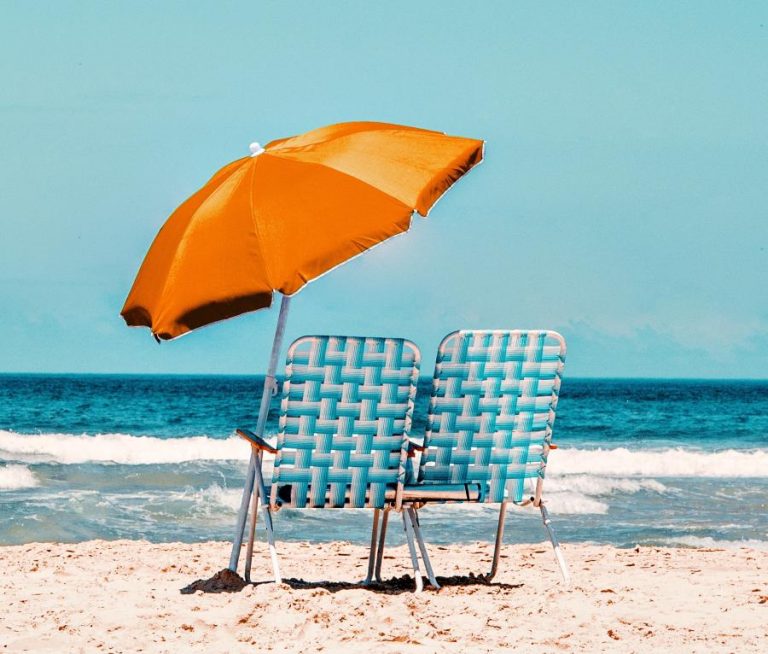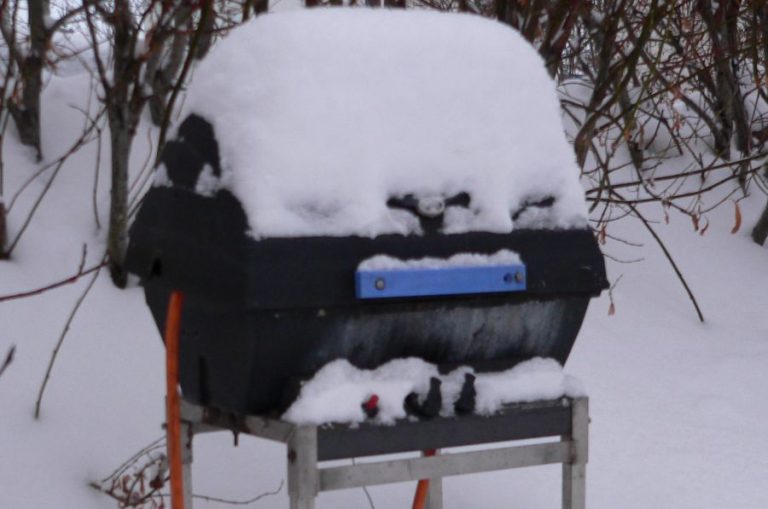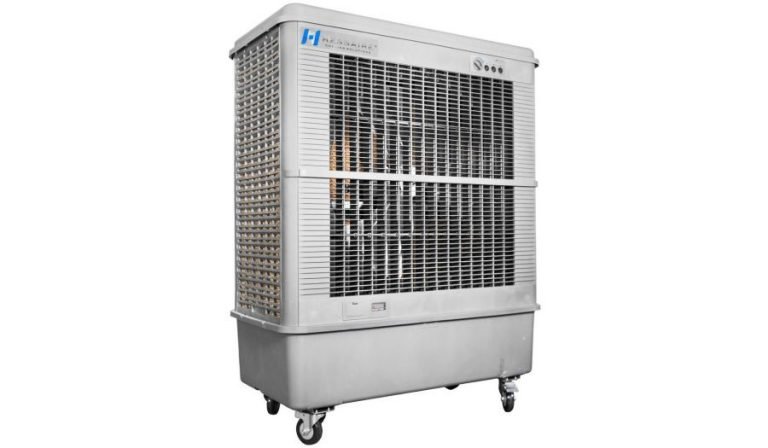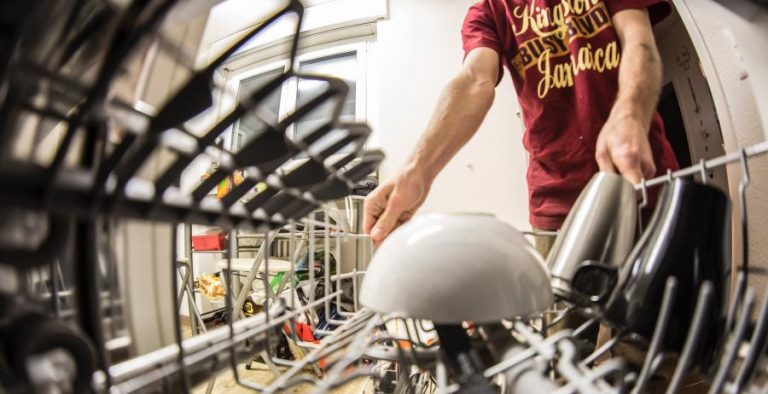What Do Snowbirds Do With Their Houses?
When the lovely breeze of the snow-filled season starts to blow, certain species of birds migrate from the harsh cold regions to a much warmer place. Humans are not much different from them. A huge number of people from the Northern states of the US and Canada travel hundreds of miles to the Southern region where there is warmth. These migrating citizens are simply called "Snowbirds" with all the affection. These snowbirds typically are those who have retired or have a good amount of wealth to afford to be out of their everyday life and enjoy different weather.
Snowbirds travel for an extended period of time. Some people travel to a different state while others love to roam around through different continents. Some like to stay away for a couple of weeks while for others, it takes more than a month. Some snowbirds have a vacation home ready at where they travel to, some like to steer through hotels and some use an RV to go on exciting trips through states. But one thing is for certain, every snowbird needs to leave their own home for a long period of time. Some of them can afford to keep a maid or serviceman to take care of their house while some put up their houses for rent. But most of the snowbirds out there don't rely on others.
What Do Snowbirds Do With Their Houses?
When a house is unused for some time during the winter you need to prepare it. This means that you have to winterize it, to make sure that no pipes will rupture. The house needs to be pest-proof and needs to be looking as it is occupied during the time you are not there. Also, keep emergency contacts available.

Well, to know what snowbirds do with their houses, we must keep in mind that it solely depends on every individual's choice. Asides from that, there are some common facts and habits that most of the snowbirds love to follow while leaving their loving house behind, unattended for weeks or even months. Everything from the water connection to the electricity needs proper care from weeks before leaving. There are a lot of things to worry about and anything can go wrong. But, don't worry. If you can fulfill the prime requirements and finish all the chores correctly, you might find your house as you left it even after months.
As a frequent traveler who takes pride in roaming around through states in his own RV, I've handled my house perfectly even when I was away for three months straight. In the beginning, when I just bought my RV and was thinking about traveling long distances, I felt puzzled about leaving my house for weeks. There were a lot of things to worry about and I wasn't getting anywhere near a solution.
I searched and searched for hundreds of hours and finally started with some common practices. I admit it was a little bit tricky at first, but eventually, I got the hang of it. Now, I can travel for months without even worrying a little bit about my house, because I know with much confidence that it will be just as I left it. I'm going to share my experiences, tips and tricks throughout this whole article so anyone looking for a good solution like I did can find it with ease. Without further ado, here's what you need to know before you can leave your house for the winter!
The Basics
Every person walking this Earth loves his home and wants to keep it safe from harm's way. For a snowbird, it is tough but not impossible. To know what to do with your house while you're away for long, the first thing to do is to go through the basics. The basics include knowing every nook and corner of the interior and exterior of your house.
If you're worrying too much about your house, stop worrying and sit down for a moment. Think about what can go wrong while you're away. The answer to what you can do to your house lies within this thought. If you can find out all the troubles that your house can get into while you're away, then it's simple troubleshooting away from the perfect solution.
The most common problems that your house can face while you away include burglary, damage of the water supply, damage of the electrical system, damage due to heating, pests infestation, damage caused by weather and damage due to temperature difference. Yes, that's a lot of problems, but there are perfect solutions for each and every one of these problems. You just need to be patient and act way before the departure date. In the next section, I will discuss each of these problems from a broad perspective and offer the best solution that I found helpful throughout my 20 years of experience.
Winterizing Your Home: The Complete Guide
Winterizing means to prepare your house for the winter period that it would stay empty and you'll be out with your family. The process of winterizing a permanent house starts way before the departure date. You need to start doing everything at least 15 days before the departure date. Here are the different scenarios and aspects of winterizing a home from top to bottom. I will enlist each and every possible threat and suggest the most efficient diagnosis to each of them. At the end of the suggestion, I'll provide a short checklist that you can follow the next time you go for a brief tour. So, here it goes!
– Keeping Your Home Occupied
The first and the most important thing to keep in mind while you go on a vacation is to keep your home looking occupied. If you leave your home just as it is and day-by-day it starts to look like there's nobody home, it will attract a lot of thieves for sure. By now, you've surely wondered how can I keep my home looking occupied when nobody is even inside? Well, here's how you can do that!
- Mail: Even if you're not in your house, the mailman will surely come every day and leave your mails inside the mailbox. At a certain period, the mailbox will overflow and it will be clear to everyone passing by it that there's nobody home. So, before you leave your house, forward your mails to a different address or contact the postal service to put a halt to your mails for the time being. The same thing goes for the newspaper too.
- Delivery items are another thing to worry about. You can't simply make a pile of delivery items at your front door as it will attract a lot of bad eyes. Contact someone near the house so they can pick-up the delivery items while you're away.
- Snowstorms are another thing to worry about. After a snowstorm, your house would be burdened with snow on the roof, the backyard, and possibly everywhere around. Leaving the snow as it is for a couple of days will make people curious. Don't let that happen. Contact a local service way before you leave so they can clean the snow if a snowstorm hits anytime.
- Motion sensitive lights: A very clever demonstration can be done through motion-sensitive lights. These lights come with timer settings and can go on/off whenever you want them to. You can set a definite amount of lights throughout the inside and outside of the house and set the timer at a different time for each one. That way, the house will look more lively and prowlers will stay away for sure. Plus, the motion-sensors can detect movement around them and act accordingly.
– Layered Protection From Burglars
Burglars love the winter season because they know a lot of people travel to a faraway destination at that time. They're always looking for a good empty house to get into and take everything they can carry. To avoid getting your house robbed, here are the things you need to consider!
- Alarm system: There are countless modern alarm systems that come with various types of sensors. From motion sensors to heat detectors, you can choose between thousands of alarm systems for better protection. Consider installing an alarm system with wireless connectivity if you don't already have one. That way, as soon as the alarms go off, the system will notify you and the local police. If you have a traditional alarm system already installed in your house, double-check it for errors before leaving your house.
- Good locks: Make sure the doors and windows have tightly sealed locks that can't be operated from the outside. Use deadbolts or hinges for better security at the doors. For sliding windows, install sliding locks and double-check everything before departure.
- Safe storing: The most precious objects and documents in your house must be kept inside safe storage. It can be anything from a deposit box to a coded storage system.
- No socials media: Another important thing to consider especially for social media addicts is to never share their travel plans online if there are unknown people who can view it. Thieves nowadays roam around the internet more than we do and it's totally unsafe to let them know your move when it can be used against you.
– Water Supply Management
Water supply is by far the most important thing in your house. Some snowbirds might suggest you to completely disconnect the water supply before you leave. But, as I've seen many occurrences in the past, I will advise differently. There are two options for you, in this case, you can either let it flow or stop it from the mainline. Here's what you need to do with your water supply if you're away for more than a month!
# Shutting Down The Water Supply
- Check: The main water supply that runs from the outside to each and every room in the house is created with countless interconnecting tubes. These tubes are prone to leakage and corrosion. If one of the pipes inside your house starts to leak, it won't make much of a difference in a day or two. But, it will flood the whole house a week or two for sure. To save your house from that, you can shut off the supply of water completely. But there are some exceptions also. If your house has a definite heating system, ask your supplier before turning it off. Again, if you have sprinklers for extinguishing a fire, keep the water supply on for that and make sure it's working perfectly before you leave.
- Empty all pipes: After shutting down the water supply, empty all the remaining water from each and every pipe inside the house. Flush all the toilets and use antifreeze to stop the remaining water from getting frozen over time. Be cautious to use non-toxic antifreeze or it may result in another disaster.
- A professional plumber can check the steps mentioned above for you. Hire a plumber right before you leave and tell him to check with compressed air so there is no leftover water inside the pipes.

# Keeping The Water Supply Alive
- Protect your pipes: As water tends to form into ice pretty quickly in the cold season, you can't leave the pipes running with water without doing anything to moderate it. If you want to keep the water running, the furnace must be kept on too. That way, the water flowing through the pipes won't create any problem.
- Heaters: Get a clear view of the interior pipe design in your house and focus on keeping those pipes way above the freezing point. Place heaters near to the pipes so the water inside can stay warm.
- Empty the dishwasher and washing machine: Keep your dishwasher locked and remove the water supply from it. Do the same thing to your washing machine and remember to drain every last drop of water from each of them.
- Draining the outside pipes: Consider draining the pipes that are located outside your house.
- Heat sensor: Install a wireless heat sensor for the water supply. It can monitor the supply of water and notify you if there's any unusual activity or anything.
– Making Your House Pest-proof
The most annoying thing people see after returning from a long vacation is the unwanted growth of pests inside their house. Pests can create a dangerous environment inside a house if they're allowed to stay for a long time. All your furniture and electronic devices can get damaged because of various types of pests. Here's what you need to do to make sure pests don't take over your lovely home while you're away!
- Clean: Keep every nook and corner of your house squeaky clean before you leave. If you find any type of pest, whether small or big, cute or dangerous, kill it immediately and use a corresponding insect killer. But, do not stay in your house while it's sprayed with pesticides. They contain harmful chemicals and your whole house can become a killing machine in a month if you do so.
- Deep clean the fridge and freezer: Perform a special cleaning and clean the refrigerator, freezer, and all the things that can attract pests. Don't leave any type of food item out in the open.
- Insects and birds: Double-check every possible way through which insects or birds can enter into the house. Keep your house completely sealed off and install nets at the air gaps.
- Check your chimney and fireplace thoroughly. It's not a job for a regular person to be honest. Hire a professional cleaner and closely inspect all the cleaning procedures to ensure the safety of your house.
– Keep Emergency Contacts Available
Even if you do each and everything in the most accurate way, there's always a possibility of something going the wrong way. It can be a simple leak in the water supply or even a false alarm. If you get notified about anything unusual while you're a thousand miles away from your home, there's nothing you can do but panic, or is there? Of course, there's a way for everything. Here's what you need to do in case of emergencies!
- Get the necessary contact information from the local police department and notify them about your vacation. That way, you'll have their service whenever you need and they'll keep an eye out on behalf of you.
- Smoke detectors are life savers when a house is vacant. Install at least one of these at each floor and make sure they work perfectly before you leave your house.
- Ask to keep an eye out: Ask your next-door neighbor or a friend who lives near your house to keep an eye out. If you trust them, leave a copy of your keys so they can act quickly in times of emergency.
That's probably everything you need to know or do with your house before you can head to your warm destination without having to worry about your house every day. As we are forgetful creatures, I know you won't have the time to go through each of the descriptions while you get ready for your vacation. So, for those of you who have endured all the way to this point, here's a checklist for the final hours!
Checklist
Check | Things To Look For |
|---|---|
Cancel/Relocate Mail, Newspaper, and Deliveries | |
Working Alarm System | |
Condition of Water Supply | |
Condition of Water Heating System | |
Locks on Each Door, Window, and Cabinet | |
Important Objects and Documents in Safe Deposit | |
Drained Every Last Ounce of Water from Each Pipe | |
Enable Water Supply for Fire Sprinkler | |
Perfectly Working Water Flow Sensors | |
Safely Maintained Electrical System | |
Pest-proofing The Whole House | |
Working Motion Sensors and Heat Detectors | |
Wireless Monitoring System Paired With Smartphone | |
Motion Detecting Lights and Correct Timer Setting | |
Contact Information of Local Police Department | |
Contact Information of Trusted Local |






